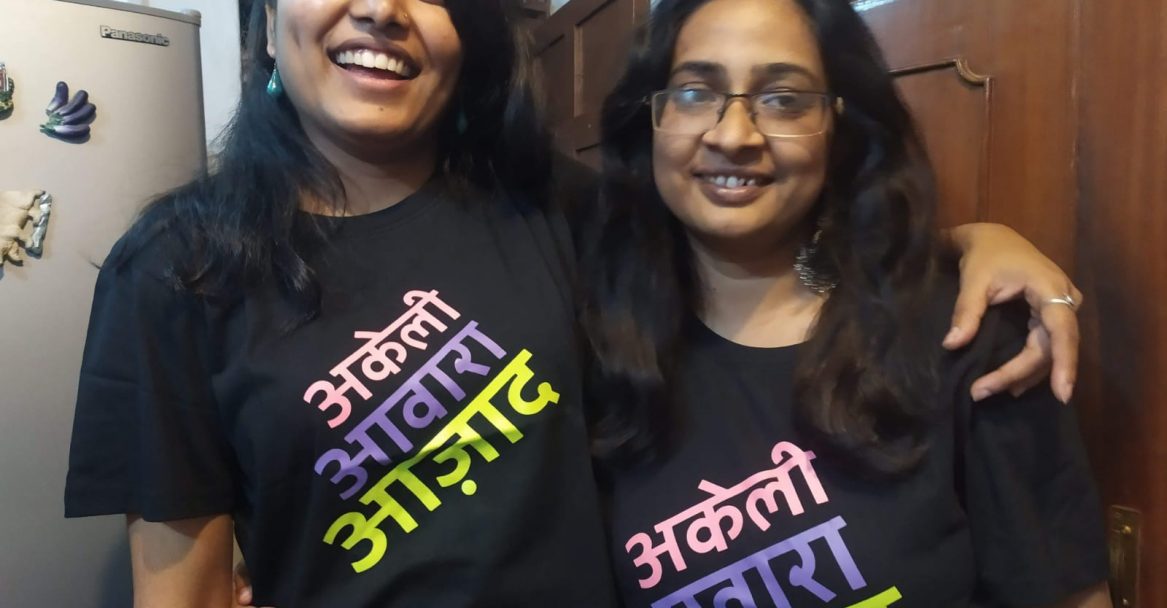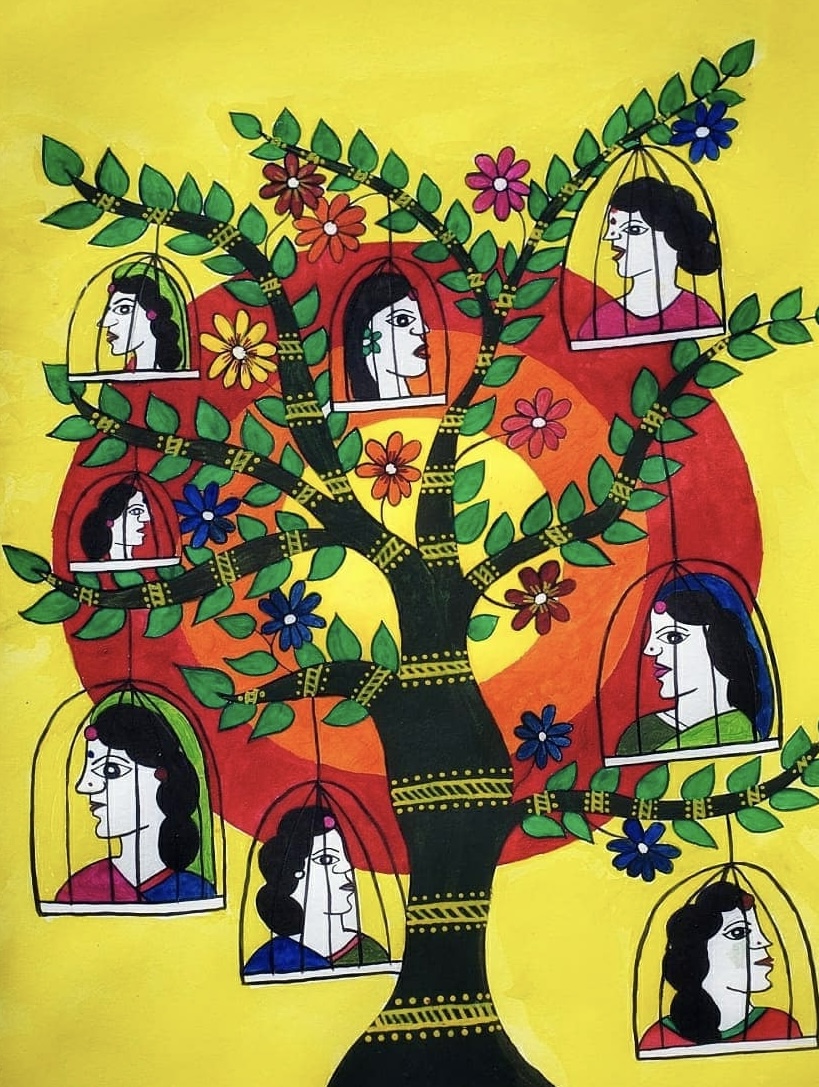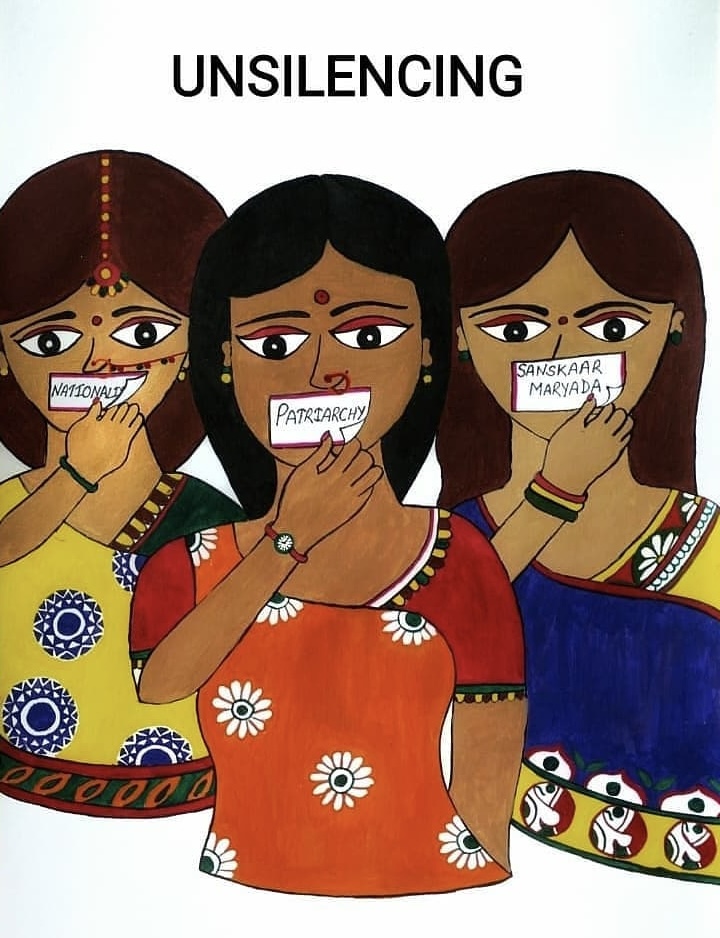PayalSapna Paints
NEPAL

PayalSapanaPaints is a collaboration between Pallavi and Sapana, reimagining Mithila art through feminist lens in Nepal. Their work blends tradition with contemporary themes of gender, identity, and social justice. They have tried to challenge societal norms and change narratives. Their art serves as both expression and advocacy, preserving heritage while pushing for inclusivity. PayalSapanaPaints transforms Mithila art into a space for dialogue, bridging the past and present to inspire change. Explore their rich paintings on their website: https://www.payalsapanapaints.com/
Madhesi identity is also often misrepresented in Nepal’s national discourse, with Madhesi women frequently depicted as powerless. Coming from the same community, we seek to challenge this stereotype by highlighting the resilience, agency, and leadership of Madhesi women [through our art]PayalSapna Paints
What role do you think art can play in social change?
At PayalSapanaPaints, we use Mithila art to amplify marginalized voices, break taboos, and challenge systemic inequalities. Our work has sparked conversations on gender, sexuality, citizenship rights, and caste-based discrimination, helping people engage with these critical issues in a relatable way. We also use Mithila art to challenge rigid gender norms within the Madhesi community, which has historically had limited discourse beyond the gender binary. By reinterpreting traditional Mithila motifs with feminist themes, we subvert patriarchal narratives and create space for progressive discourse within a deeply rooted cultural tradition.
Beyond visual storytelling, PayalSapanaPaints engages in workshops and exhibitions to encourage young people, especially women and marginalized individuals to use art as a medium for self-expression and activism. These engagements empower participants to tell their own stories and contribute to ongoing social movements.
In a time when right-wing conservative forces threaten gender equality and human rights globally, art remains a powerful tool for resistance. Our goal is to challenge exclusionary narratives and create art that not only reflects but actively shapes the struggle for justice and equality.
How would you describe your artistic practice as it relates to supporting social movements?
PayalSapanaPaints amplifies social movements by actively contributing to conversations of change and standing in solidarity with movements led by marginalized and minority communities. As individuals from a marginalized Madhesi community who also hold upper-caste privilege within it, we recognize our unique position to foster dialogue without overshadowing the voices that need to be heard.
For example, In 2020, when Nepal introduced a discriminatory citizenship bill that would have left many people stateless particularly Madhesi women in cross-border marriages the mainstream discourse largely ignored its consequences. While the bill prevented Nepali women from passing citizenship to their spouses and children, it also imposed a seven-year waiting period for foreign spouses, disproportionately affecting Madhesi women. PayalSapanaPaints used art to break down the bill’s implications, sparking conversations on nationalism, gender, and statelessness, issues that were otherwise dismissed.
Madhesi identity is also often misrepresented in Nepal’s national discourse, with Madhesi women frequently depicted as powerless. Coming from the same community, we seek to challenge this stereotype by highlighting the resilience, agency, and leadership of Madhesi women. Through our art, we aim to reclaim space, change dominant narratives, and ensure that Madhesi voices, especially those of women, are recognized and valued.
What does this award mean for you and your artistic practice?
With this award, we hope to strengthen our ability to create thought provoking artwork that sparks dialogue, fosters awareness, and encourages action. We also plan to expand our engagement through workshops, collaborations, and interactive exhibits that bring communities together to discuss, reflect, and resist. Ultimately, this support will help us sustain and scale our efforts in narrative change, ensuring that the voices of marginalized communities are not just heard but centered in our fight for justice and equality.

